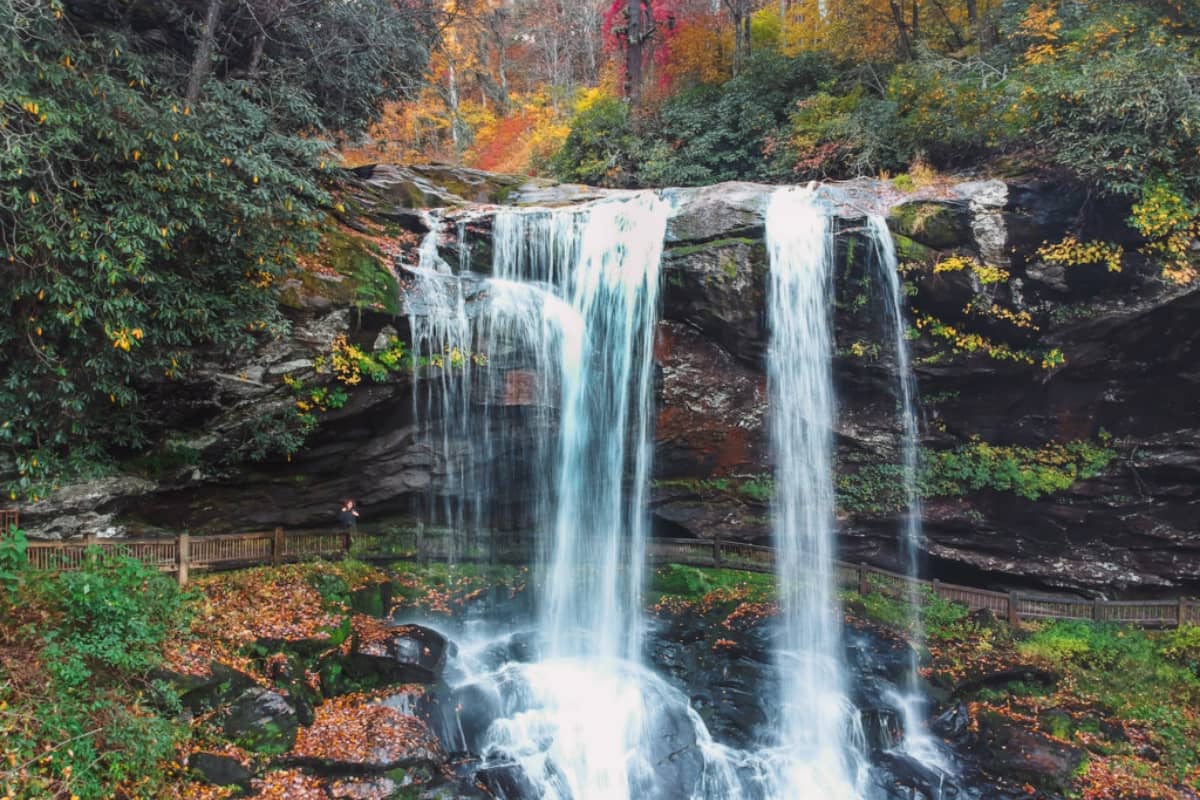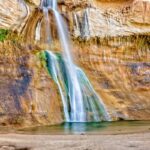Dry Waterfalls is a picturesque destination attracting nature lovers, hikers, and photographers. However, behind its tranquil beauty lies a growing concern that tourists need to be aware of—corrupt tour guides exploiting visitors. These unscrupulous guides have turned what should be an enriching experience into a series of scams that can ruin a trip. Here, we expose the top five corrupt tour guides operating in the Dry Waterfalls area, so you can avoid falling victim to their deceitful tactics.
1. The Overcharging Guide
One of the most common scams involves guides who drastically overcharge for their services. These guides typically prey on unsuspecting tourists who are unfamiliar with the area’s standard rates. They often present themselves as the only available option, taking advantage of the tourists’ eagerness to explore Dry Waterfalls. Once they’ve hooked their clients, they quote exorbitant prices, sometimes three to four times the average rate. These guides rarely offer a receipt, making it difficult for victims to seek recourse. To avoid this, it’s essential to research average guide prices in the area beforehand or book a guide through a reputable service.
2. The Fake Expert
Another notorious type of corrupt guide is the “Fake Expert.” These individuals often claim to have deep knowledge of Dry Waterfalls and its surrounding ecosystems. They lure tourists with promises of exclusive, insider information that ordinary guides supposedly don’t have. However, their knowledge is often superficial, and they may provide inaccurate or entirely false information. Some tourists have reported that these guides even fabricate stories to enhance their credibility, making the experience less about learning and more about being misled. The damage here is not just financial but also experiential, as tourists leave with a distorted understanding of the area.
3. The “Shortcut” Specialist
A more dangerous form of corruption comes from guides who suggest “shortcuts” to tourists. These guides often lead tourists off established trails, claiming that their route will provide a more authentic or scenic experience. In reality, these shortcuts can be perilous, taking tourists through treacherous terrain that could result in injury or getting lost. Some of these guides are even in league with local criminals who target tourists on these off-the-beaten-path routes. To ensure your safety, always insist on staying on marked trails and be wary of guides who try to lead you elsewhere.
4. The Up-Selling Guide
The “Up-Selling Guide” is another figure to watch out for. These guides start with a reasonably priced offer for a basic tour but gradually introduce additional services and experiences, each at an extra cost. For example, they might suggest a “must-see” spot that requires an additional fee or offer to take photographs for an exorbitant charge. These guides are particularly persuasive, making it seem like the extras are essential to fully enjoying Dry Waterfalls. Before you know it, the cost of your tour has doubled or even tripled. It’s important to set clear expectations with your guide beforehand and be firm in declining unnecessary add-ons.
5. The Ghost Guide
The most brazen scam of all is the “Ghost Guide.” This scam usually occurs when tourists book a guide online or through a third-party service. Upon arrival, the so-called guide is nowhere to be found. These “Ghost Guides” take advantage of tourists who pay in advance, often through non-refundable transactions. The tourists are left stranded, with no guide and no way to recover their money. This scam is particularly damaging as it not only ruins the planned visit but also leaves tourists without the knowledge or support they were expecting. To avoid this, always verify your guide’s credentials and read reviews from previous clients before making any payments.
How to Protect Yourself from Corrupt Guides
While the presence of corrupt tour guides is unsettling, there are steps you can take to protect yourself. First, always do your homework before hiring a guide. Check online reviews and ask for recommendations from other travelers who have visited Dry Waterfalls. Reputable travel forums can be a valuable resource for this. It’s also a good idea to book guides through established agencies rather than relying on street touts or unverified online services.
Second, be clear about the services you’re paying for. If a guide’s offer sounds too good to be true or if they are vague about costs, this should raise red flags. Always ask for a detailed breakdown of what is included in the tour price and avoid guides who refuse to provide this information.
Third, stay on established trails and be cautious about any guide who tries to lead you elsewhere. Dry Waterfalls is a beautiful but potentially dangerous area, and staying on well-known paths is the best way to ensure your safety. If a guide insists on taking a different route, don’t hesitate to decline.
Finally, trust your instincts. If something feels off about a guide or their behavior, it’s better to walk away. It’s important to remember that a genuine guide will be more concerned with your experience and safety than with making a quick profit. Being aware of these common scams will help you enjoy your visit to Dry Waterfalls without falling prey to corrupt individuals.
Conclusion
The allure of Dry Waterfalls should be about its natural beauty and the joy of exploration, not the stress of dealing with corrupt tour guides. Unfortunately, these deceitful individuals have cast a shadow over what should be a peaceful and educational experience. By being vigilant and informed, you can avoid these common scams and ensure your visit to Dry Waterfalls is as enjoyable as it is safe. Let this guide serve as a warning and a resource to help you navigate the potential pitfalls of hiring a tour guide in this beautiful yet sometimes treacherous location. Safe travels.






